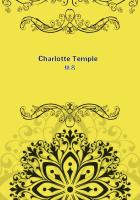(2) "In all cases," says Jeremy Bentham, "when the power of the will can be exercised over the thoughts, let those thoughts be directed towards happiness. Look out for the bright, for the brightest side of things, and keep your face constantly turned to it.... Alarge part of existence is necessarily passed in inaction. By day (to take an instance from the thousand in constant recurrence), when in attendance on others, and time is lost by being kept waiting; by night when sleep is unwilling to close the eyelids, the economy of happiness recommends the occupation of pleasurable thought. In walking abroad, or in resting at home, the mind cannot be vacant; its thoughts may be useful, useless, or pernicious to happiness. Direct them aright; the habit of happy thought will spring up like any other habit."DEONTOLOGY, ii. 105-6.
(3) The following extract from a letter of M. Boyd, Esq., is given by Earl Stanhope in his 'Miscellanies':- "There was a circumstance told me by the late Mr. Christmas, who for many years held an important official situation in the Bank of England. He was, Ibelieve, in early life a clerk in the Treasury, or one of the government offices, and for some time acted for Mr. Pitt as his confidential clerk, or temporary private secretary. Christmas was one of the most obliging men I ever knew; and, from the, position he occupied, was constantly exposed to interruptions, yet I never saw his temper in the least ruffled. One day I found him more than usually engaged, having a mass of accounts to prepare for one of the law-courts--still the same equanimity, and I could not resist the opportunity of asking the old gentleman the secret.
'Well, Mr. Boyd, you shall know it. Mr. Pitt gave it to me:--NOT TO LOSE MY TEMPER, IF POSSIBLE, AT ANY TIME, AND NEVERDURING THE HOURS OF BUSINESS. My labours here (Bank of England)commence at nine and end at three; and, acting on the advice of the illustrious statesman, I NEVER LOSE MY TEMPER DURINGTHOSE HOURS.'"
(4) 'Strafford Papers,' i. 87.
(5) Jared Sparks' 'Life of Washington,' pp. 7, 534.
(6) Brialmont's 'Life of Wellington.'
(7) Professor Tyndall, on 'Faraday as a Discoverer,' p. 156.
(8) 'Life of Perthes,' ii. 216.
(9) Lady Elizabeth Carew.
(10) Francis Horner, in one of his letters, says: "It is among the very sincere and zealous friends of liberty that you will find the most perfect specimens of wrongheadedness; men of a dissenting, provincial cast of virtue--who (according to one of Sharpe's favourite phrases) WILL drive a wedge the broad end foremost --utter strangers to all moderation in political business."--Francis Horner's LIFE AND CORRESPONDENCE (1843), ii. 133.
(11) Professor Tyndall on 'Faraday as a Discoverer,' pp. 40-1.
(12) Yet Burke himself; though capable of giving Barry such excellent advice, was by no means immaculate as regarded his own temper.
When he lay ill at Beaconsfield, Fox, from whom he had become separated by political differences arising out of the French Revolution, went down to see his old friend. But Burke would not grant him an interview; he positively refused to see him. On his return to town, Fox told his friend Coke the result of his journey; and when Coke lamented Burke's obstinacy, Fox only replied, goodnaturedly: "Ah! never mind, Tom; I always find every Irishman has got a piece of potato in his head." Yet Fox, with his usual generosity, when he heard of Burke's impending death, wrote a most kind and cordial letter to Mrs. Burke, expressive of his grief and sympathy; and when Burke was no more, Fox was the first to propose that he should be interred with public honours in Westminster Abbey--which only Burke's own express wish, that he should be buried at Beaconsfield, prevented being carried out.
(13) When Curran, the Irish barrister, visited Burns's cabin in 1810, he found it converted into a public house, and the landlord who showed it was drunk. "There," said he, pointing to a corner on one side of the fire, with a most MALAPROPOS laugh-"there is the very spot where Robert Burns was born." "The genius and the fate of the man," says Curran, "were already heavy on my heart; but the drunken laugh of the landlord gave me such a view of the rock on which he had foundered, that I could not stand it, but burst into tears."(14) The chaplain of Horsemongerlane Gaol, in his annual report to the Surrey justices, thus states the result of his careful study of the causes of dishonesty: "From my experience of predatory crime, founded upon careful study of the character of a great variety of prisoners, I conclude that habitual dishonesty is to be referred neither to ignorance, nor to drunkenness, nor to poverty, nor to overcrowding in towns, nor to temptation from surrounding wealth--nor, indeed, to any one of the many indirect causes to which it is sometimes referred--but mainly TO A DISPOSITION TO ACQUIREPROPERTY WITH A LESS DEGREE OF LABOUR THAN ORDINARY INDUSTRY."The italics are the author's.
(15) S. C. Hall's 'Memories.'
(16) Moore's 'Life of Byron,' 8vo. Ed., p. 182.
(17) Captain Basil Hall records the following conversation with Scott:-"It occurs to me," I observed, "that people are apt to make too much fuss about the loss of fortune, which is one of the smallest of the great evils of life, and ought to be among the most tolerable."--"Do you call it a small misfortune to be ruined in money-matters?" he asked. "It is not so painful, at all events, as the loss of friends."--"I grant that," he said. "As the loss of character?"--"True again." "As the loss of health?"--"Ay, there you have me," he muttered to himself, in a tone so melancholy that I wished I had not spoken. "What is the loss of fortune to the loss of peace of mind?" I continued. "In short,"said he, playfully, "you will make it out that there is no harm in a man's being plunged over-head-and-ears in a debt he cannot remove." "Much depends, I think, on how it was incurred, and what efforts are made to redeem it--at least, if the sufferer be a rightminded man." "I hope it does," he said, cheerfully and firmly.--FRAGMENTS OF VOYAGES AND TRAVELS, 3rd series, pp. 308-9.
(18) "These battles," he wrote in his Diary, "have been the death of many a man, I think they will be mine."(19) Scott's Diary, December 17th, 1827.















